Beginning Sounds Worksheets for Ages 3-8
19 filtered results
-
From - To
Help your child master the alphabet with our engaging Beginning Sounds Worksheets for Ages 3-8! Designed to make learning fun, these colorful printable worksheets help young learners identify and practice initial sounds, setting a strong foundation for reading and spelling. Perfect for preschool through early elementary grades, each worksheet features a variety of interactive activities, such as matching pictures to initial letters and listening to phonetic sounds. Convenient and free, these expertly crafted resources are ideal for educators and parents looking to nurture early literacy and phonemic awareness in their children. Boost your child's confidence and skills today!
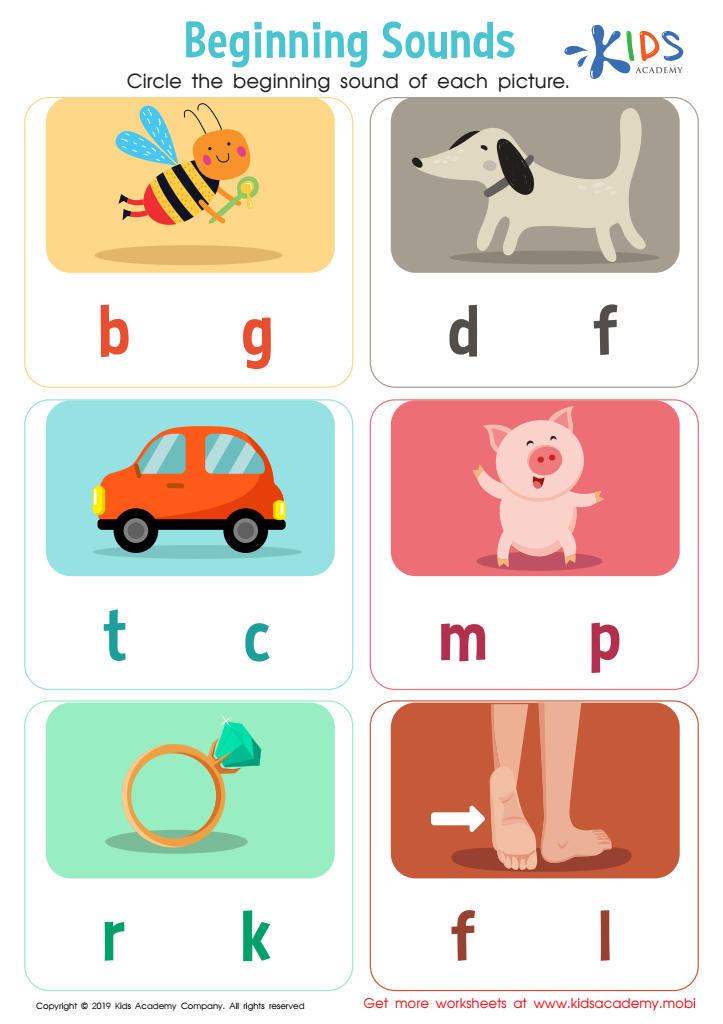

Beginning Sounds Worksheet
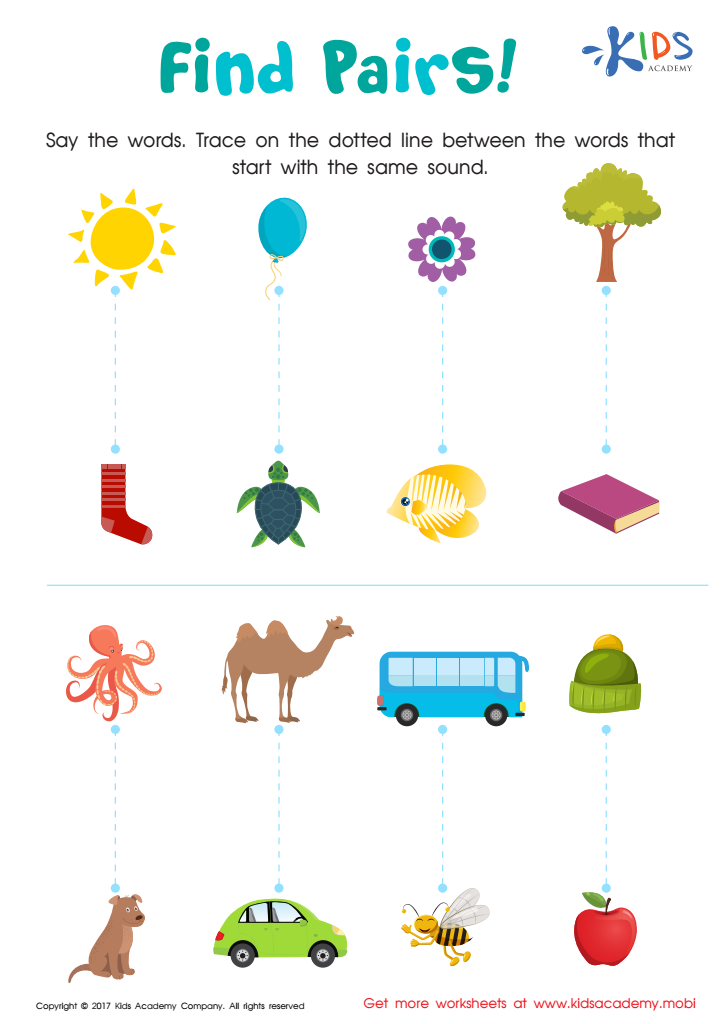

Beginning Sound: Find Pairs Worksheet
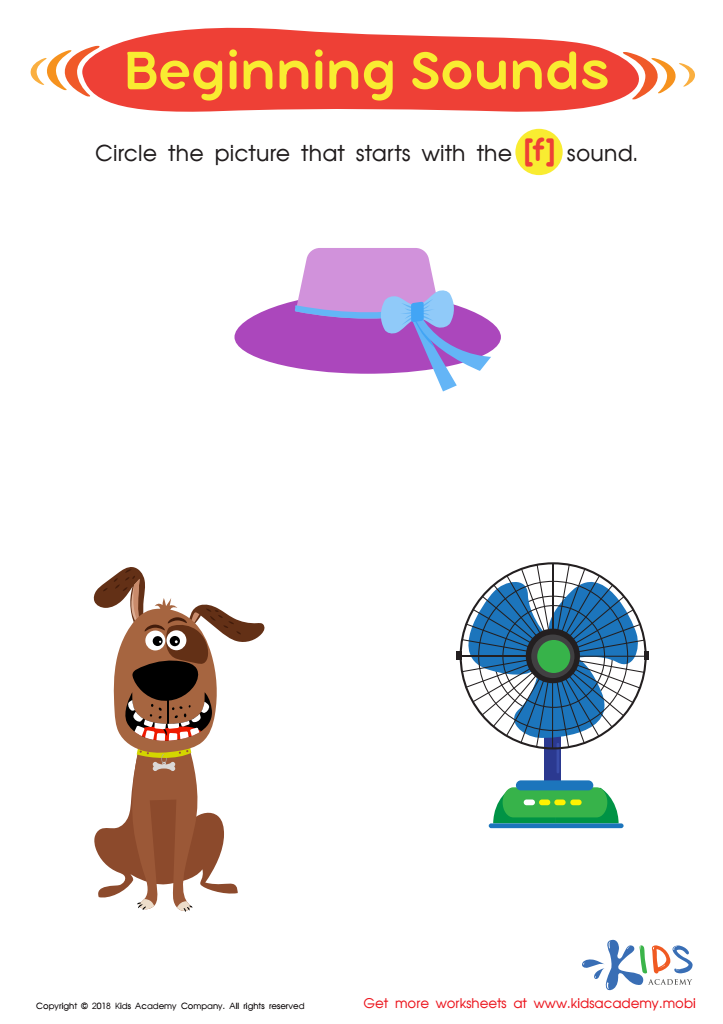

Beginning Sounds Assessment Printable
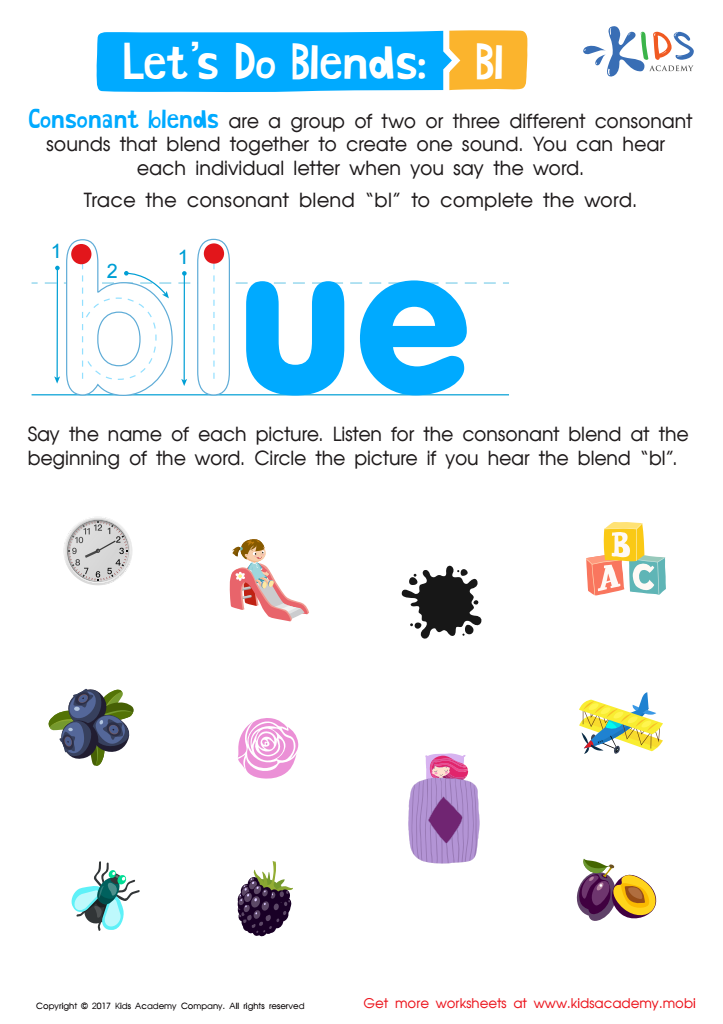

Beginning Blends: "Bl" Words Worksheet
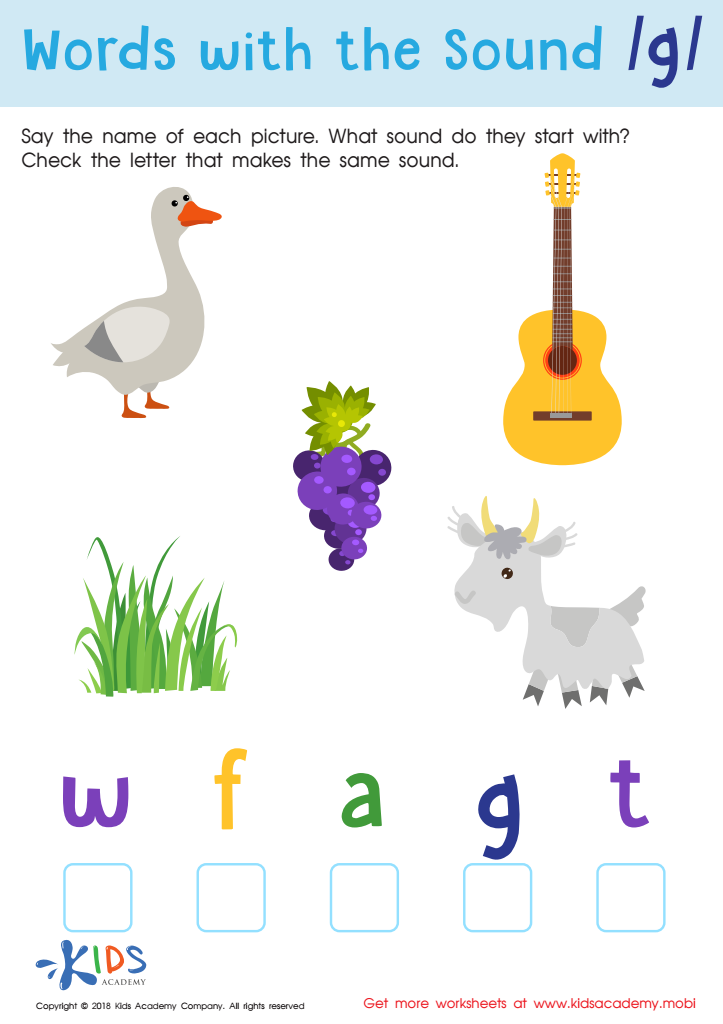

Words with sound g Reading Worksheet
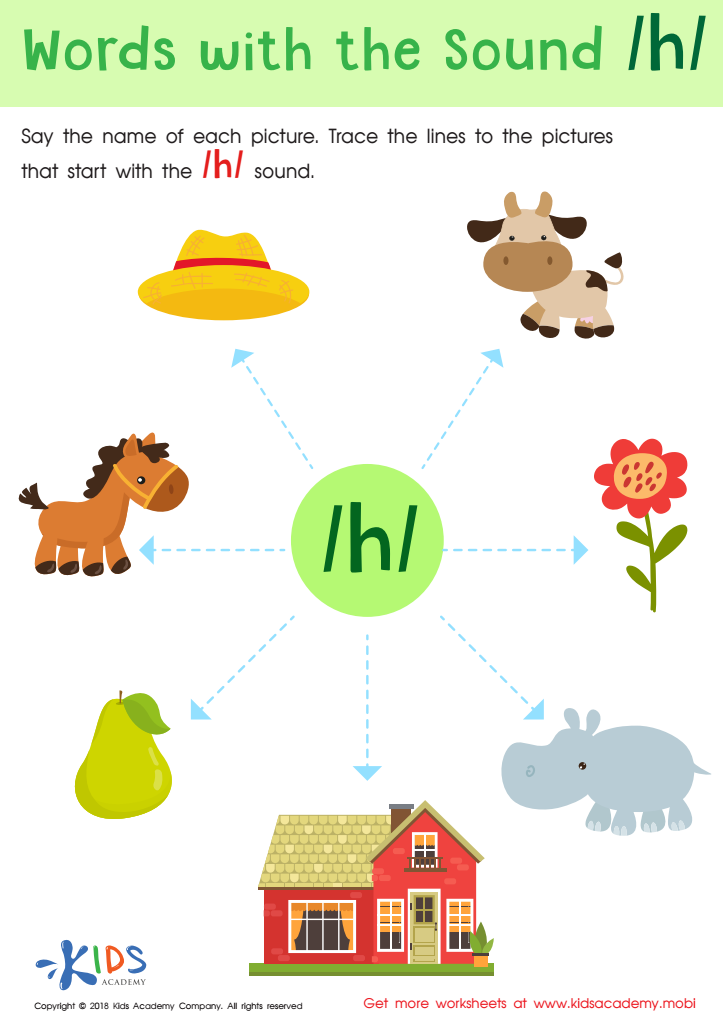

Words with sound h Reading Worksheet
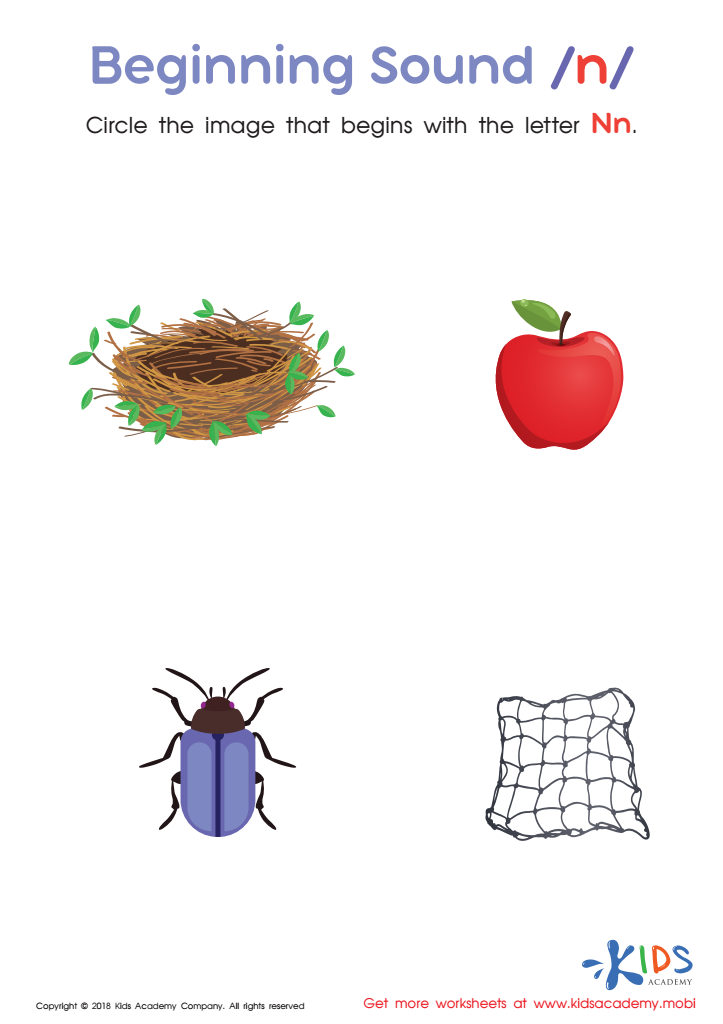

Beginning Sound «n» Worksheet


Twin Onset Worksheet
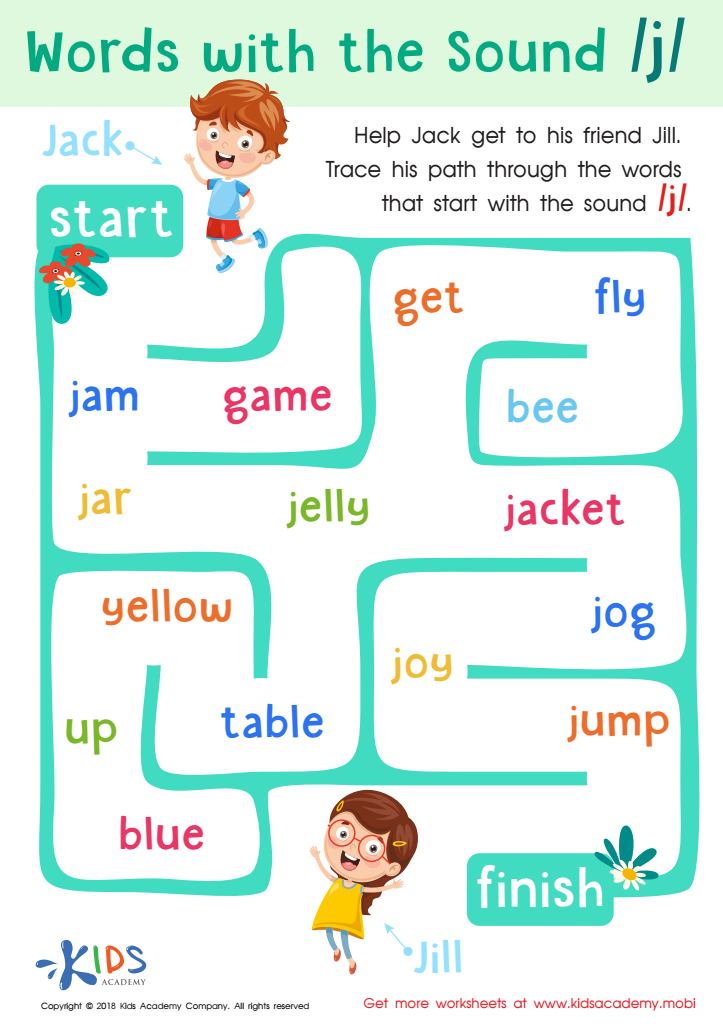

Words with sound j Reading Worksheet
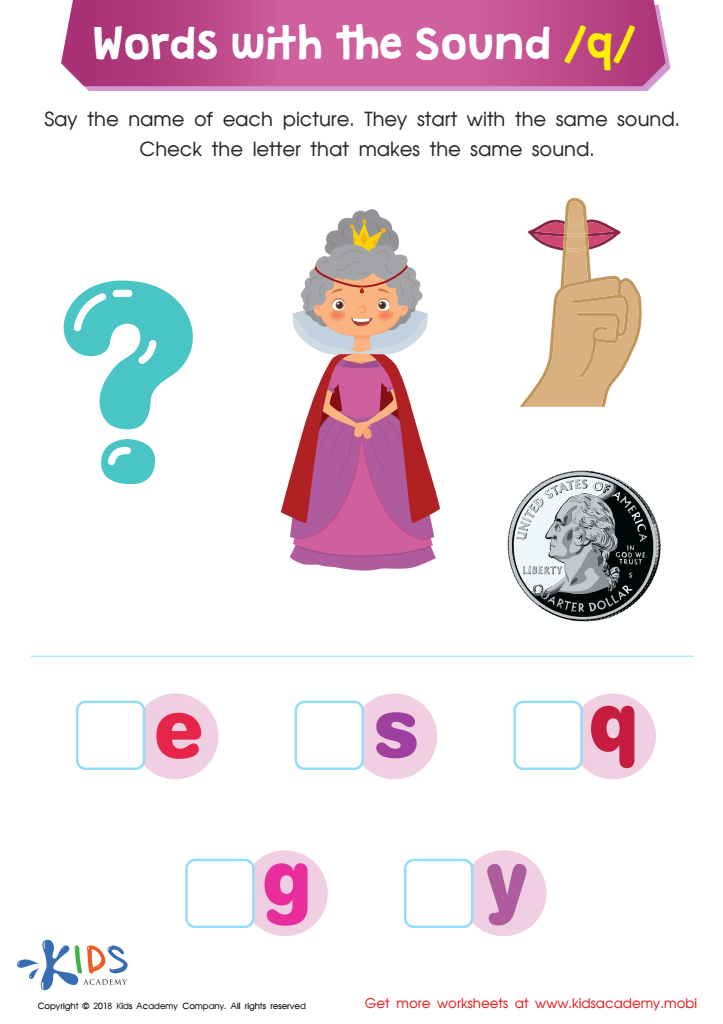

Words with Sound Q Reading Worksheet
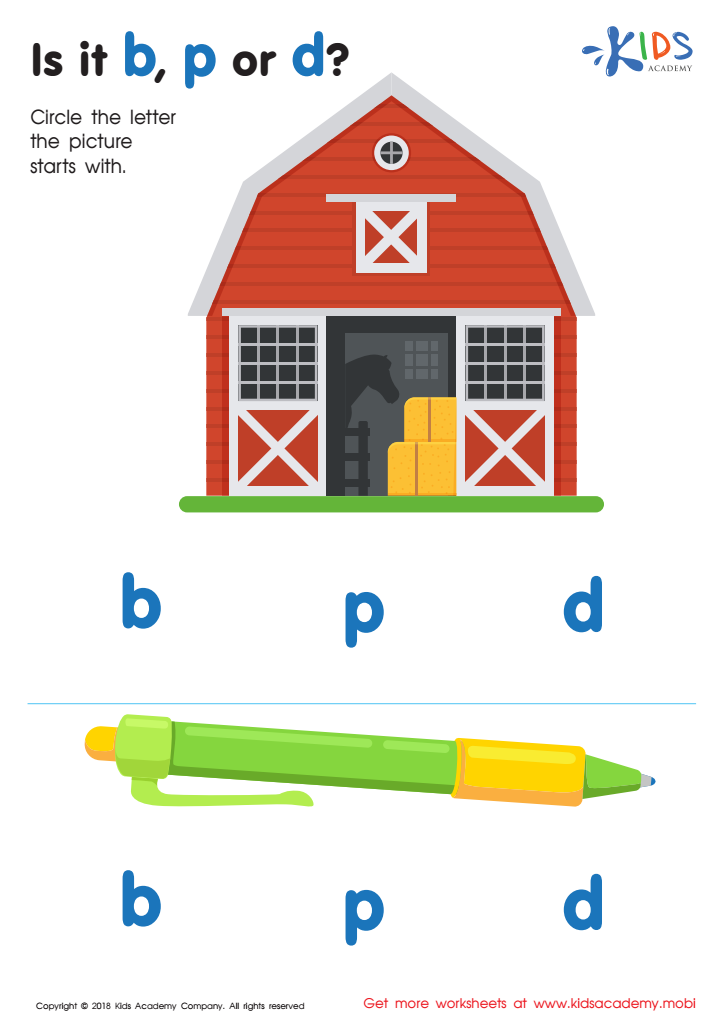

Is it b, p or d? Worksheet
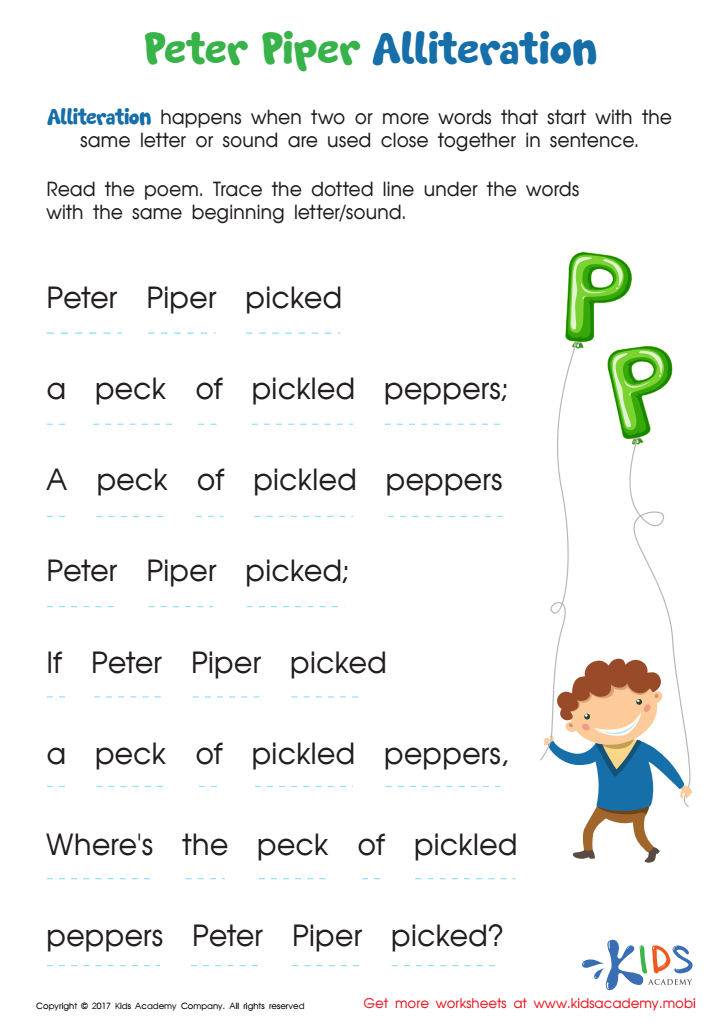

Peter Piper Alliteration Worksheet
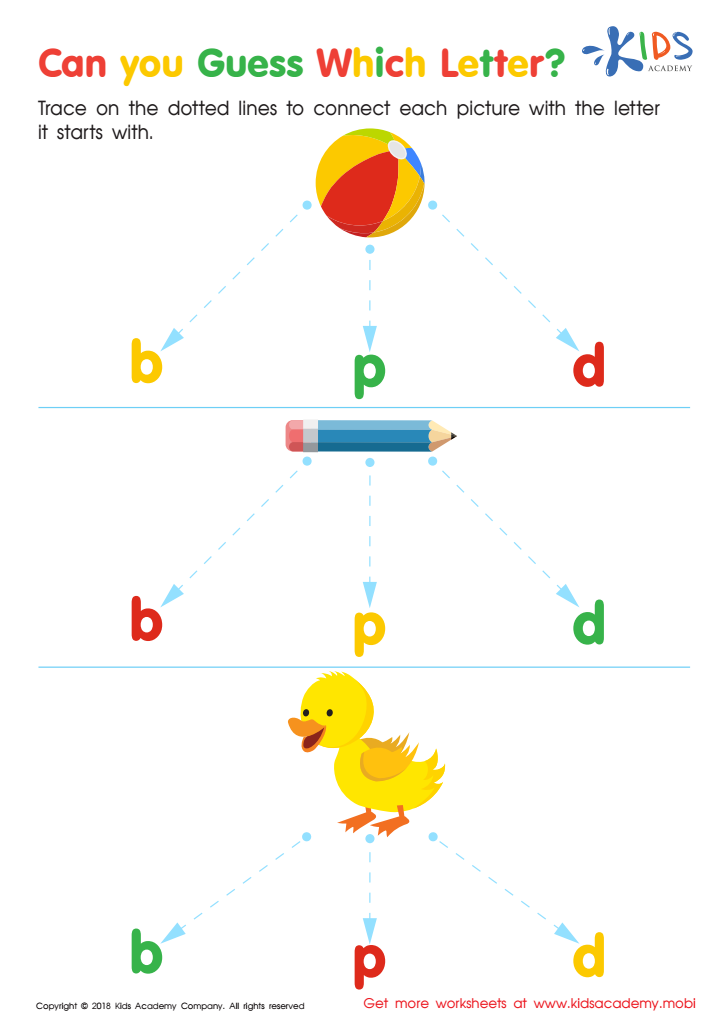

Can you Guess Which Letter? Worksheet


Words with sound p Reading Worksheet


Words with sound f Reading Worksheet
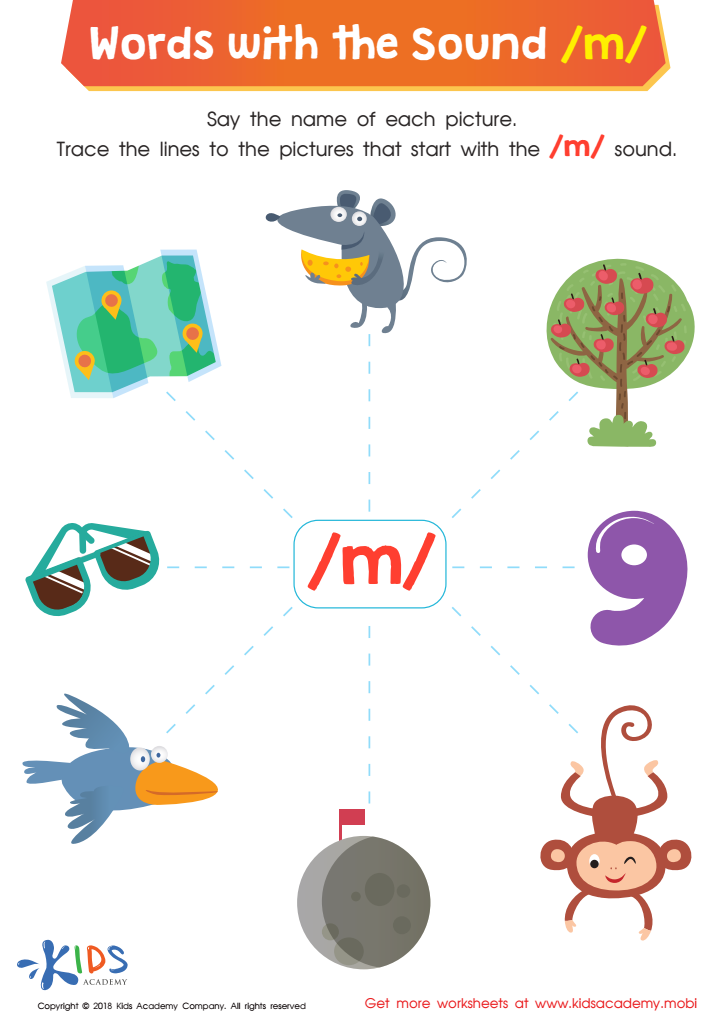

Words with Sound M Reading Worksheet


Phonics and Word Recognition: Assessment 1 ELA Worksheet
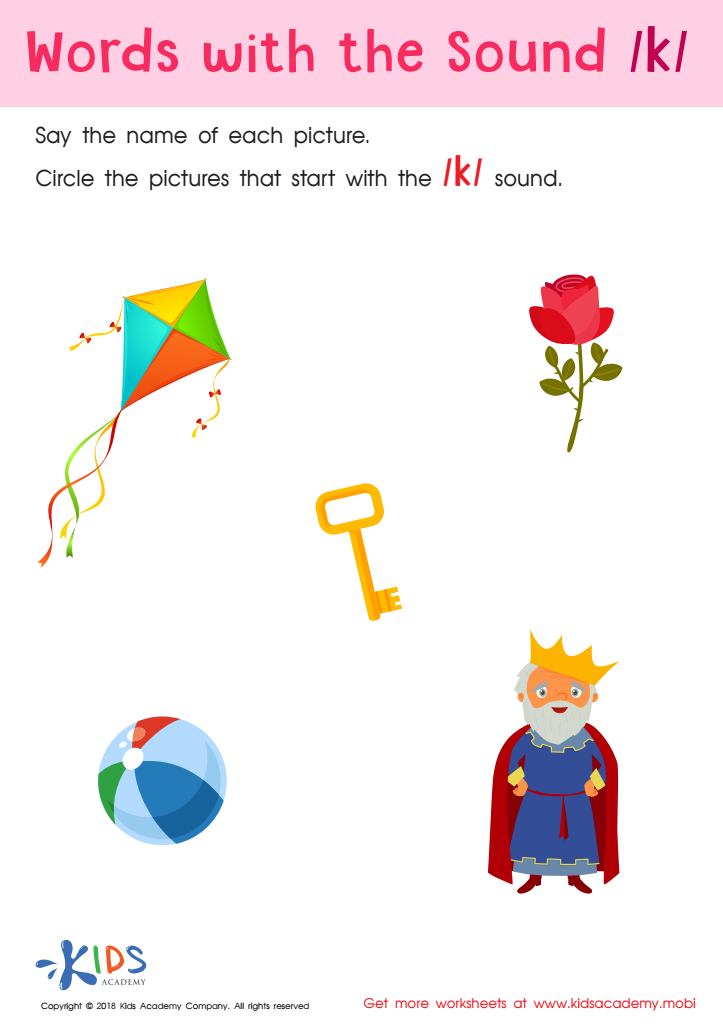

Words with sound k Reading Worksheet
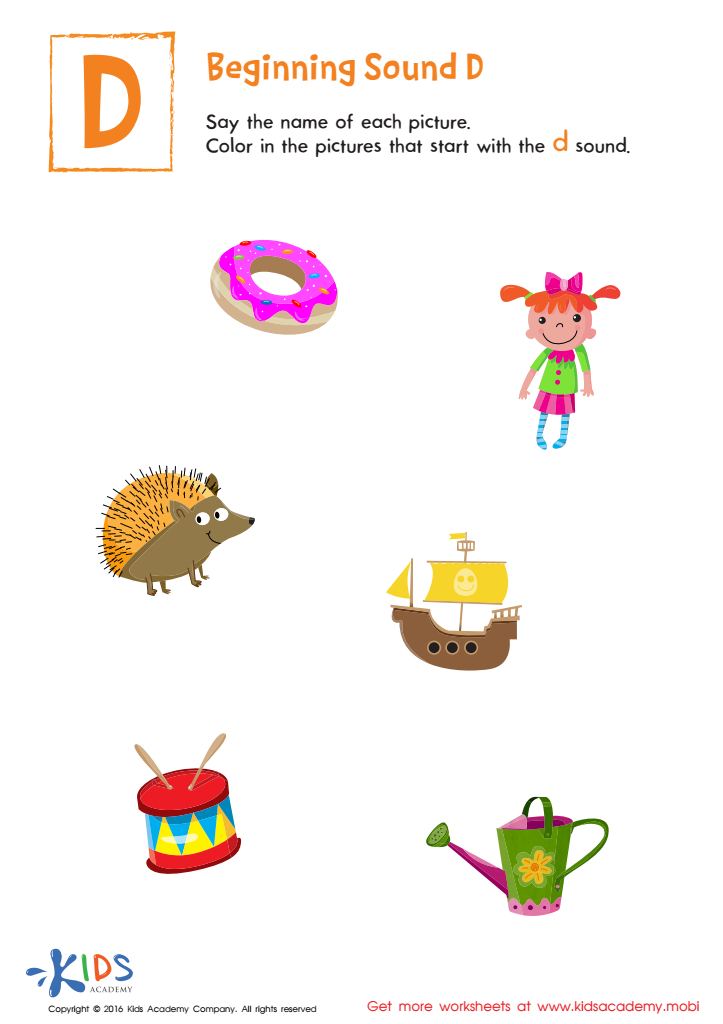

Beginning Sound D Worksheet
Beginning sounds are an essential component of early literacy development, crucial for children between the ages of 3 and 8. At this developmental stage, kids are like sponges, rapidly absorbing information and laying the foundation for all future learning. Beginning sounds, or the initial phonemes of words, help children connect letters to their respective sounds, fostering phonemic awareness.
Phonemic awareness is a critical stepping stone to reading and writing proficiency. When children can identify and differentiate beginning sounds, they are better equipped to decode words, making sense of written language more fluidly. This awareness supports their ability to blend sounds together to form words, enhancing both their reading accuracy and fluency.
Moreover, mastering beginning sounds aids in vocabulary development and comprehension. As children grow confident in their ability to tackle new words, they engage more with texts, fostering a love for reading that has lifelong benefits. A robust early literacy foundation, heavily dependent on an understanding of beginning sounds, is linked to higher academic achievement across multiple subjects.
Engaging with beginning sounds also accelerates language development and communication skills, creating proficient learners. Parents and teachers can use playful activities, songs, and interactive reading sessions to reinforce these skills, ensuring that children have a strong linguistic base for future educational success.
 Assign to My Students
Assign to My Students














